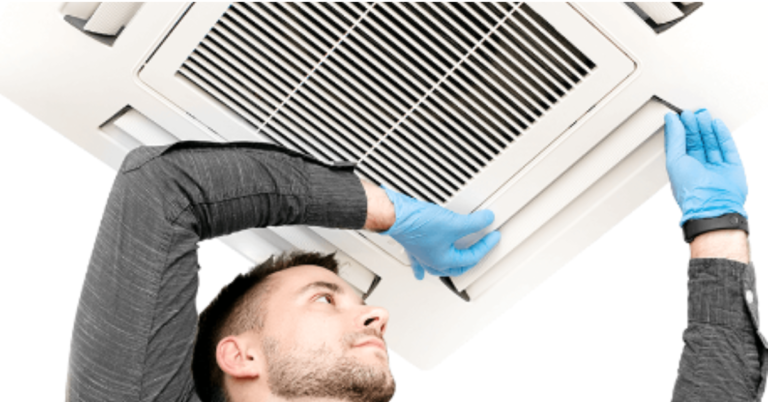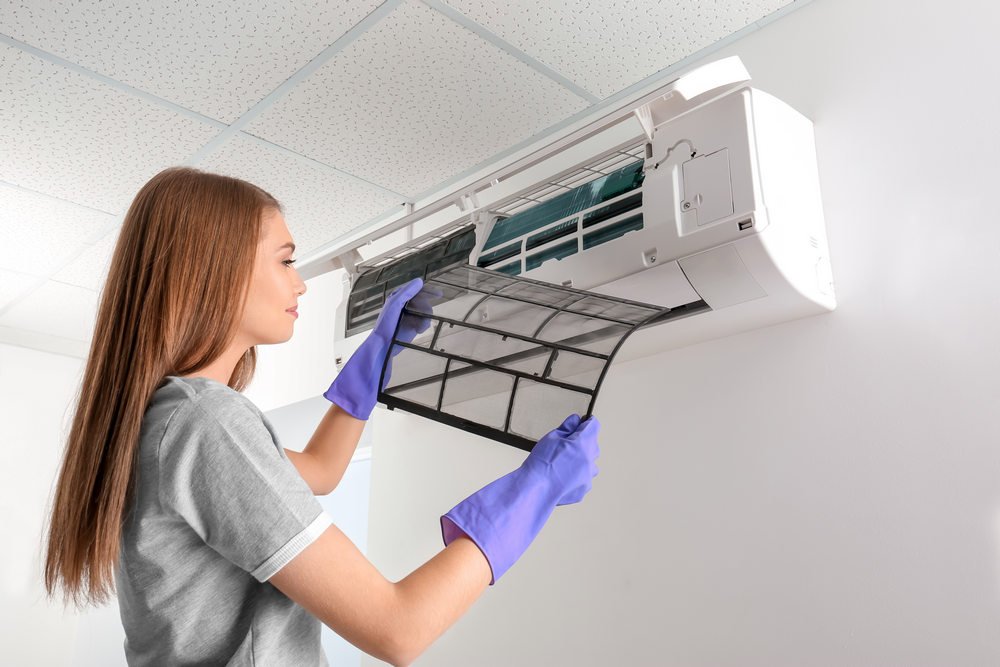Smelly HVAC system symptoms can be an unpleasant surprise for many homeowners and business owners. The last thing you want is to be greeted by an unwelcome odor every time your heating or cooling system kicks on. Understanding these symptoms is crucial for maintaining a healthy and comfortable indoor environment. In this article, we’ll explore the various causes of these odors and what you can do to address them.

Understanding the Basics of HVAC Systems
Before diving into the smelly HVAC system symptoms, it’s important to grasp the basics of how an HVAC system operates. These systems are designed to regulate indoor air temperature and improve air quality. However, over time, they can develop issues that lead to unpleasant smells. Regular maintenance is key to preventing these problems. Dirty Ducts Affect the performance and efficiency of your HVAC system, leading to potential odors.
Common Causes of HVAC Odors
There are several potential causes for a smelly HVAC system. Some of the most common include:
- Mold and Mildew: When moisture accumulates in the ducts or system components, it can lead to mold and mildew growth, which often results in a musty smell.
- Dirty Filters: A clogged or dirty filter can restrict airflow and cause the system to overheat, leading to a burning smell.
- Animal Infestation: Sometimes, small animals like rodents can find their way into the ductwork, causing a foul odor.
- Electrical Issues: A burning smell can indicate an electrical problem within the HVAC system, such as faulty wiring or an overheating motor.
Mold and Mildew: The Usual Suspects
Mold and mildew are among the most common culprits of a smelly HVAC system. These fungi thrive in damp, humid environments, making your HVAC system an ideal breeding ground. It’s crucial to address this issue promptly, as it can affect your health and damage the system. For more information on dealing with mold, visit Mold Solutions.
Signs of Mold in Your HVAC System
Recognizing the signs of mold is the first step in addressing the problem. Look out for these indicators:
- Musty Odor: A persistent musty smell is often a clear sign of mold growth within the system.
- Visible Mold: In some cases, you may be able to see mold growing on the ducts or other components of the system.
- Health Symptoms: Mold exposure can lead to respiratory problems, allergies, and other health issues.
Addressing Smells from Dirty Filters
One of the simplest ways to prevent odors in your HVAC system is by regularly changing the air filters. Dirty filters not only reduce air quality but can also cause the system to emit unpleasant smells. Learn more about the Best Ways to Remove Musty Smell from your HVAC system.
Choosing the Right Filter
Not all filters are created equal. When selecting a filter, consider the following:
- Filter Rating: Look for filters with high MERV ratings, as these are more effective at trapping smaller particles.
- Material: Some filters are made from synthetic materials that are better at capturing mold spores and allergens.
Animal Infestation: Unexpected Visitors
Animals can sometimes find their way into your ductwork, leading to unpleasant smells. This can be a serious issue, as animals can cause damage to the system and potentially introduce harmful bacteria.
How to Identify Animal Infestation
If you suspect an animal infestation, look for these signs:
- Unusual Noises: Scratching or scurrying sounds coming from the ducts.
- Foul Odor: A strong, unpleasant smell that doesn’t dissipate.
- Visible Droppings: Animal droppings around the vents or ducts.
Electrical Issues and Burning Smells
Electrical problems can result in a burning smell emanating from your HVAC system. This is a serious issue that should be addressed immediately to prevent potential fire hazards.
Identifying Electrical Problems
Here are some signs that your HVAC system might have electrical issues:
- Burning Smell: A persistent burning smell when the system is running.
- Flickering Lights: Lights that flicker when the HVAC system is in use.
- Tripped Breakers: Circuit breakers that frequently trip.
Maintaining Your HVAC System
Regular maintenance is key to preventing smelly HVAC system symptoms. Here are some tips to keep your system running smoothly:
- Regular Inspections: Schedule annual inspections with a professional HVAC technician.
- Change Filters: Replace air filters every 1-3 months, depending on usage.
- Clean Ducts: Regular duct cleaning can prevent the buildup of dust and debris. Learn more about Cleaning Ducts effectively.
- Check for Leaks: Regularly inspect the system for leaks or signs of moisture.
Conclusion
Addressing smelly HVAC system symptoms is crucial for maintaining a healthy indoor environment. By understanding the potential causes of these odors and taking proactive steps to prevent them, you can ensure that your HVAC system runs smoothly and efficiently. For more tips on maintaining your HVAC system and improving indoor air quality, visit This Old House.

FAQ
Why does my HVAC system smell musty?
A musty smell is often caused by mold or mildew growth within the system. Regular maintenance and cleaning can help prevent this issue.
How often should I change my HVAC filter?
It’s recommended to change your HVAC filter every 1-3 months, depending on usage and the type of filter you use.
What should I do if I suspect an animal infestation in my HVAC system?
If you suspect an animal infestation, it’s best to contact a professional HVAC technician to inspect and address the issue.
This article contains affiliate links. We may earn a commission at no extra cost to you.